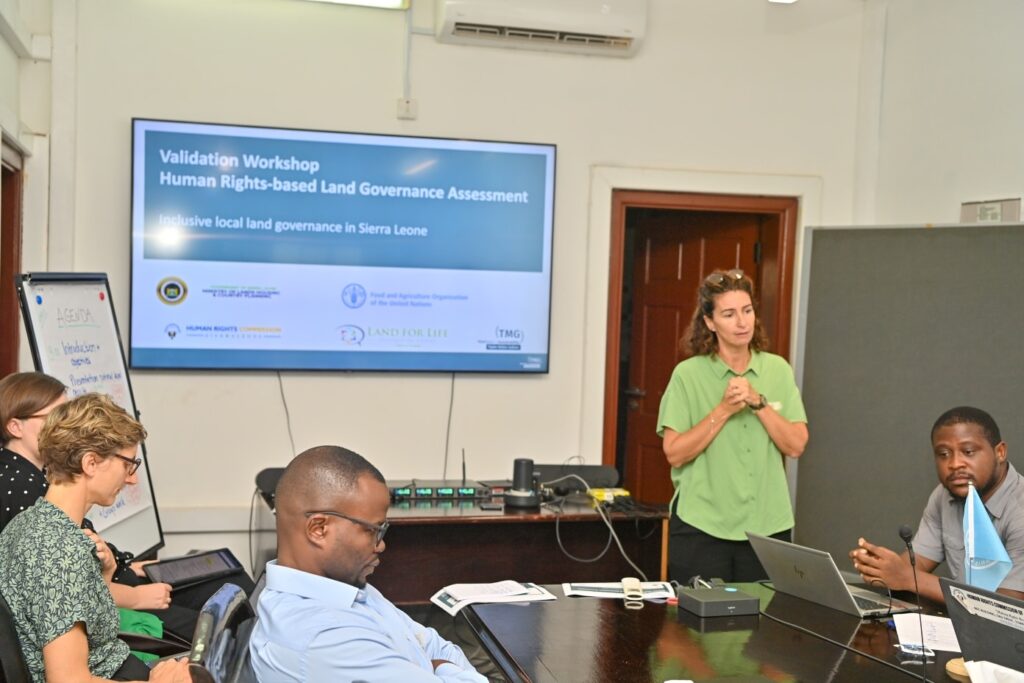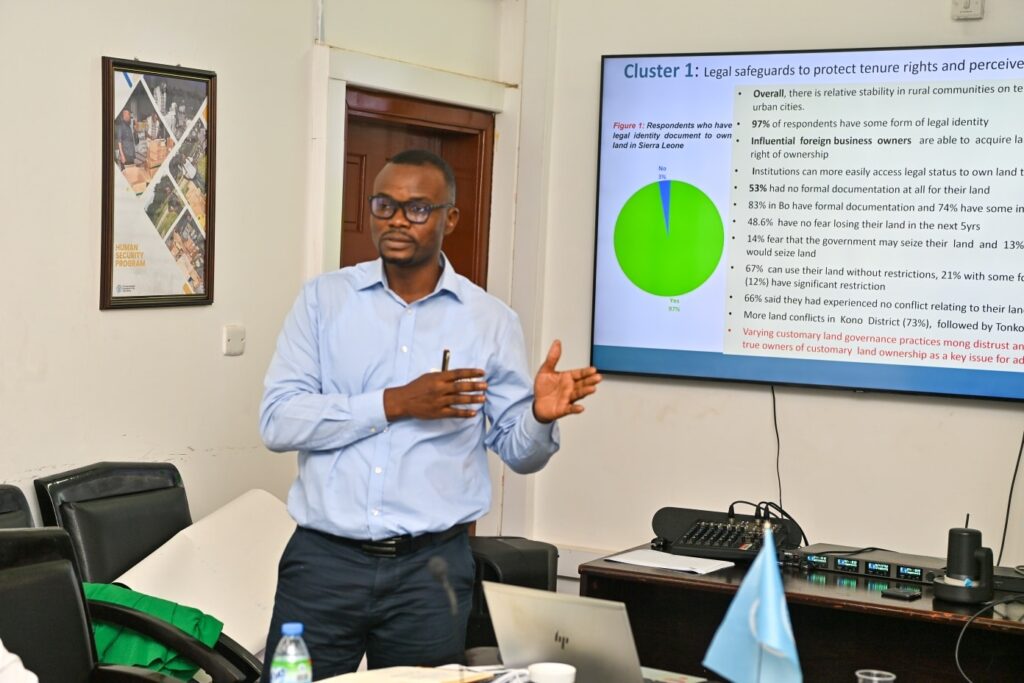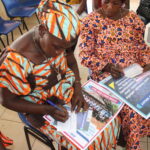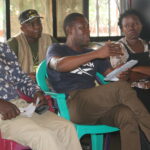LAND FOR LIFE AND HUMAN RIGHTS COMMISSION FOR SIERRA LEONE END HUMAN RIGHTS-BASED LAND GOVERNANCE ASSESSMENT VALIDATION WORKSHOP

With support from UN Food and Agricultural Organisation (FAO) and Tuffer Muller_Think Tank (TMG), Land for Life Sierra Leone and the Human Rights Commission for Sierra Leone have concluded a three-day validation workshop of the Human Rights- based Land Governance Assessment. An assessment that was undertaken earlier this year.
The validation workshop, which was facilitated by TMG and UNFAO was considered as one among several other external validation processes of the report. The workshop was attended by the enumerators who were deployed across the six districts for the process, the district supervisors who are core district staff of the Human Rights Commission of Sierra Leone, and the Research Technical Staff from Land for Life and the Human Rights Commission.
Francesca Romano, the Land Tenure Officer for UN-FAO, welcomed attendees to the workshop, stating that it is an opportunity for both the Human Rights Commission and Land for Life to look at each other’s results and match them with the country’s present land governance environment. Francesca also praised both organisations for their unwavering cooperation in compiling the findings of the national and local surveys.
TMG supported both teams in presenting the major findings from the national and local assessment reports. Through the various presentations, both institutions were led to discover in the reports the most interesting facts, which violated human rights and were sensitive. This method was used so that both teams would know exactly some of the main issues that emanated from their reports
Welcoming participants to the Workshop, Francesca Romano, the Land Tenure Officer for UN-FAO said that the workshop is an opportunity for both the Human Rights Commission and Land for Life to look at each other’s findings and align them with the current land governance context of the country. Francesca further thanked both institutions for their relentless support in putting together the results of both the national and the local questionnaires.
TMG facilitated the presentation of the key findings from the reports of the national and local assessments. Through the various presentations, findings that were considered most interesting violated human rights and were sensitive were identified by the two teams in smaller groupings. This strategy was applied so that both teams would know exactly some of the core issues emanated from their findings.
While the Human Rights Commission for Sierra Leone in their National Level Report identified that there are existing laws to protect people from losing their land in the country, Land for Life’s local level report discovered that though there are fine laws in the country to protect people from losing their lands, 53% had no formal documentations for their land, therefore, have the fear that they might one day lose their land to either the government or investment entities. Some of the findings, particularly at the local level, pointed out that 74% of respondents who had land-related conflicts, indicated they did not seek legal recourse, which is owing to the absence of official proof of ownership of their land which the court might ask for.

At the end of the workshop, a clear path to take the report forward was set. Key among what was suggested were
- Harmonization of both the national and local level survey reports;
- Land for Life to hold town hall meetings with the findings of the report
- The Human Rights Commission to hold a stakeholder validation workshop in Freetown.
- Final reports be presented to UN-FAO by November 2024
It is clear that land governance issues in Sierra Leone are deeply entrenched, deteriorating the human rights of many people in rural areas. The survey’s eleven (11) clusters supported in identifying some of the causes of these difficulties and their connections with others. One of the important takeaways was the significance of coordination between governmental entities and the private sector in ensuring tenure security in the country.




